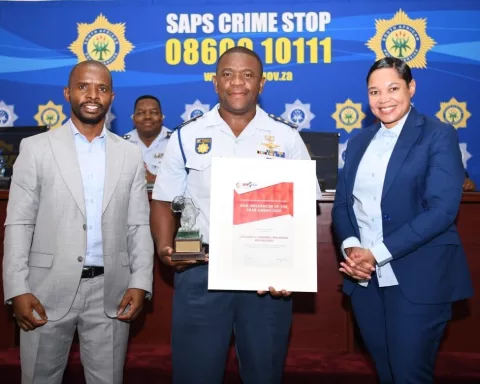In South Africa, two cities, Johannesburg and Cape Town, tell a tale of contrasts in leadership and progress. Johannesburg struggles with problems like crime and failing services, while Cape Town shines with strong leadership and impressive infrastructure, eager to host global events like the G20 Leaders’ Summit. President Ramaphosa has criticized Johannesburg’s issues, calling for urgent change, while Cape Town’s Mayor Hill-Lewis confidently positions his city as a reliable host, showcasing its readiness and pride. As these cities strive to improve, their rivalry could spark exciting advancements, shaping a brighter future for all South Africans.
What are the challenges faced by Johannesburg and Cape Town in urban governance?
Johannesburg faces governance lapses, financial mismanagement, crumbling infrastructure, rampant crime, and erratic service delivery. In contrast, Cape Town showcases strong leadership, strategic investments, and a commitment to progress, positioning itself as a reliable host for international events like the G20 Leaders’ Summit.
A Critical Conversation on Governance
In the vibrant heart of South Africa, a compelling story unfolds—a narrative that intertwines leadership, civic responsibility, and the unwavering quest for development. This story, centered on President Cyril Ramaphosa’s recent assessment of Johannesburg’s condition, highlights the intricate dynamics between Johannesburg and Cape Town, two of the nation’s most significant cities.
President Ramaphosa convened with Johannesburg Mayor Dada Morero and Gauteng Premier Panyaza Lesufi to deliberate on South Africa’s upcoming role as the host of the G20 Leaders’ Summit in 2025. With Johannesburg set to host the summit in November, the city came under scrutiny. Ramaphosa was unequivocal in his critique, pointing out governance lapses, financial mismanagement, crumbling infrastructure, rampant crime, and erratic service delivery as ongoing issues.
“The one or two meetings of the G20 that I attended here were not very pleasing,” Ramaphosa remarked, emphasizing his dissatisfaction. His frankness was more than mere criticism; it was a clarion call for meaningful change.
Cape Town Steps Up
Seizing this pivotal moment, Cape Town Mayor Geordin Hill-Lewis presented his city as a viable alternative. Hill-Lewis, guided by a vision of civic pride and strategic foresight, positioned Cape Town as a symbol of reliability and advancement. “Mr. President, you can be assured that Cape Town is ready at any time to host the G20 Leaders’ Summit and represent South Africa with pride on the global stage,” he asserted.
Cape Town’s credentials are undeniably impressive. The city features a lively central business district, dependable infrastructure, and cutting-edge conference facilities. Not too long ago, it successfully hosted the G20 Finance Ministers and Central Bank Governors meeting, reinforcing its reputation as a capable host for international events. Hill-Lewis’s confidence is well-founded, as Cape Town has approved a record R39.5 billion infrastructure budget over three years, surpassing the combined budgets of Gauteng’s three major metropolitan areas.
This rivalry between Johannesburg and Cape Town is reminiscent of historical and artistic movements where cities competed for cultural and political dominance. Think Florence and Rome during the Renaissance or Paris and London in the 19th century. These cities harnessed competition to drive progress and innovation. Similarly, the current scenario in South Africa could spur significant advancements in urban governance and infrastructure development.
Historical Echoes and Visionary Leadership
President Ramaphosa’s candid evaluation of Johannesburg evokes images of Charles Dickens’ vivid descriptions of 19th-century London, a city wrestling with its own challenges of modernization and governance. Dickens’ London, much like Ramaphosa’s Johannesburg, was a city in crisis yet teeming with potential. The parallels are striking: both cities, despite their flaws, possess an inherent vitality and capacity for transformation.
Hill-Lewis’s proactive approach draws parallels to visionary urban planners of the early 20th century who reimagined cities to better serve their residents. His vision for Cape Town goes beyond merely hosting a summit; it’s about presenting a city that exemplifies resilience, innovation, and effective governance. His approach mirrors the principles of the City Beautiful movement, which emphasized beautification and monumental grandeur to foster civic pride and improve urban life quality.
Lesufi, responding to Ramaphosa’s critique, struck a note of humility and commitment to improvement. “We’re not dealing with this issue specifically for G20. We need a legacy programme that can be enjoyed by all South Africans,” he stated. His words align with the ethos of sustainable development, emphasizing long-term benefits over short-term gains.
A Collaborative Vision for the Future
The interplay of these three leaders—Ramaphosa, Hill-Lewis, and Lesufi—creates a dynamic tableau of contemporary South African leadership. Their interactions reflect a profound understanding of the challenges at hand and a shared commitment to fostering progress. This scenario evokes the collaborative spirit of the Bauhaus movement, where leaders and creators worked together to redefine the future of design and architecture.
As Johannesburg and Cape Town navigate this pivotal moment, they bear the weight of history and the promise of the future. Johannesburg, with its rich past and vibrant cultural landscape, remains a city of immense potential. Cape Town, with its strategic investments and forward-thinking leadership, stands ready to showcase the best of South African urban governance.
This narrative, rich with historical allusions and contemporary relevance, underscores the importance of visionary leadership in shaping the future of cities. It is a testament to the enduring power of civic pride, strategic planning, and the relentless pursuit of progress. Through their leadership and vision, Ramaphosa, Hill-Lewis, and Lesufi are poised to transform their cities into beacons of innovation and resilience, paving the way for a brighter future for all South Africans.
FAQ: Leadership and Urban Progress in South Africa
What are the main challenges faced by Johannesburg in urban governance?
Johannesburg grapples with significant governance issues, including financial mismanagement, crumbling infrastructure, rampant crime, and inconsistent service delivery. These challenges have raised concerns about the city’s capacity to effectively host significant international events, such as the G20 Leaders’ Summit.
How does Cape Town distinguish itself in terms of urban governance?
Cape Town showcases strong leadership and strategic investments, presenting itself as a reliable host for global events. The city’s impressive infrastructure, recent record budget of R39.5 billion for development, and capabilities demonstrated in successfully hosting previous international meetings highlight its commitment to urban progress.
What did President Ramaphosa say about Johannesburg’s situation?
During a meeting with Johannesburg Mayor Dada Morero and Gauteng Premier Panyaza Lesufi, President Ramaphosa criticized the city’s ongoing issues, citing governance lapses and the urgent need for meaningful change. His remarks signal a demand for improvement in Johannesburg’s urban management ahead of the G20 Leaders’ Summit.
How did Cape Town’s Mayor respond to the challenges faced by Johannesburg?
Cape Town Mayor Geordin Hill-Lewis confidently offered his city as a viable alternative for hosting the G20 Leaders’ Summit. He emphasized Cape Town’s readiness, civic pride, and the strategic initiatives in place to enhance the city’s status as a reliable host for international events.
What historical parallels can be drawn between Johannesburg and Cape Town’s current situation?
The rivalry and contrasting conditions of Johannesburg and Cape Town evoke historical comparisons, such as Florence and Rome during the Renaissance. Both cities are harnessing competition as a catalyst for urban governance improvements and infrastructure development, reminiscent of past cultural and political dynamics.
What is the collective vision for the future of Johannesburg and Cape Town?
The leaders of Johannesburg and Cape Town, along with President Ramaphosa, share a commitment to fostering progress and sustainable development. Their collaborative approach suggests a vision that prioritizes long-term benefits for all South Africans, emphasizing civic pride, strategic planning, and effective governance to transform their cities into models of innovation and resilience.












